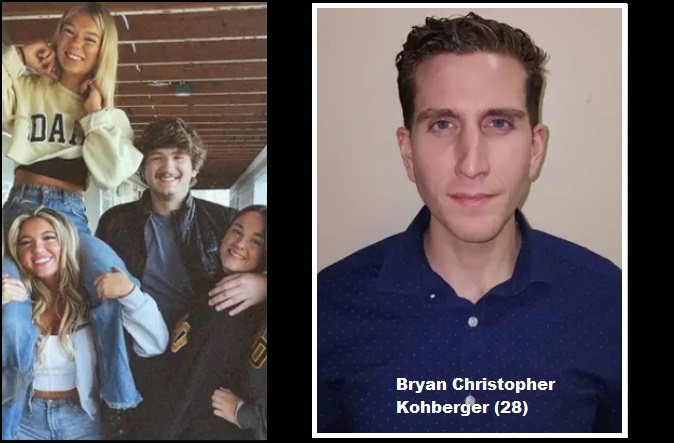This is interesting. The use of public genetic genealogy databases by law enforcement officials has been discussed for several years now.
 According to information within a CNN article about the capture of Idaho murder suspect Bryan Kohberger, it appears this might be the most recent case solved -at least in part- through the use of those public DNA databases.
According to information within a CNN article about the capture of Idaho murder suspect Bryan Kohberger, it appears this might be the most recent case solved -at least in part- through the use of those public DNA databases.
Previously the Golden State Killer was identified through the use of DNA using a public genealogy database. According to the CNN article it appears a similar process was used in the identification of Kohberger:
(Via CNN) – […] Investigators homed in on Kohberger as the suspect through DNA evidence and by confirming his ownership of a white Hyundai Elantra seen near the crime scene, according to two law enforcement sources briefed on the investigation.
[…] An FBI surveillance team tracked him for four days before his arrest while law enforcement worked with prosecutors to develop enough probable cause to obtain a warrant, the two law enforcement sources said.
Genetic genealogy techniques were used to connect Kohberger to unidentified DNA evidence, another source with knowledge of the case tells CNN. The DNA was run through a public database to find potential family member matches, and subsequent investigative work by law enforcement led to him as the suspect, the source said. (read more)
Many who understand the scope of data and privacy exploitation have often wondered and warned if it was smart for people to be voluntarily giving their DNA to various genealogical tracing companies. When Blackstone purchased Ancestry.Com the world’s largest public DNA database, there were several questions raised again about the possible misuse and privacy issues. At the time, here’s how Ancestry responded:
…”Ancestry does not sell or share customer DNA data with insurers, employers or third-party marketers, nor do we share customer personal information with law enforcement unless compelled to by a valid legal process. Ancestry’s commitment to these robust consumer privacy and data protections remain unchanged under our new ownership”…
Obviously, the key phrase in that statement is “unless compelled by a valid legal process.” An unknown DNA sample at such a horrific and nationally newsworthy crime scene, could certainly lead to law enforcement compelling that type of database search.
For the issue of catching the psychopathic criminal who killed the four college students, you won’t find too many people concerned about the methods the investigative units conducted. However, in the bigger picture of having a national DNA registry available for cross-reference use in other non-criminal matters, there are still some privacy issues to consider.

